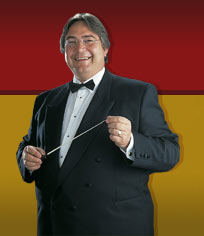With less peripatetic teachers and a growing number of affiliated Junior and Training bands there is now more voluntary community teaching going on than there has been for a number of years. With this in mind I thought Iíd share some of my teaching experiences - especially those involving young students.
Most bands have more instruments than children who want to learn, so the heart-wrenching process of selection doesnít usually apply. However, there are some physical considerations to keep in mind:
ē Does the child have his/her second teeth?
ē Is the child left-handed?
ē Is he/she big enough to play the instrument of their choice?
Transport can be a problem, itís important to let parents know early on the commitment required by them to get their child to band every week. Itís also worth taking note if the child really wants to play, or if they are being forced to learn by their parents. Many parents try to re-live their lives through their children; this situation rarely lasts.
The first formal lesson is an exciting time for a new pupil; however, it is necessary to impart some basic non-musical information. A seven year old might need some instruction in how to open and close their case, especially if the locks are old and stiff! Where to keep and insert the mouthpiece is sometimes a complete mystery for a young beginner. Giving a young pupil the confidence to know that if something goes wrong with their instrument the best thing to do is to leave it until you next see them is very important! In the nicest way it is important to stress letting Mummy or Daddy get the DIY toolbox out to fix a sticky valve is not a good idea! Where possible prepare a mini-maintenance handbook and make sure their parents read it.
The way pupils make their first sound is vitally important. I let the pupils see me play the instrument; young children are excellent mimics - its how they learned to speak! Let them blow the instruments one at a time. Keep an eye out for puffing cheeks, raised shoulders and good posture. Involve the children in peer assessment; they can see just as easy as you if someone is puffing their cheeks.
Young children rarely need lectures on buzzing, intercostals and diaphragmatic muscles. They probably wonít understand words like embouchure, posture, arching tongues or even production and tone. Itís important the teacher is vigilant of these aspects and should always be able to look, listen and alter accordingly. Many teachers like to tell their pupils everything they know about brass playing in the first lesson. I think in most cases, this is totally unnecessary. Below are four areas Iím always vigilant of when teaching young players. I donít necessarily tell the pupils about these areas; I just look, listen and adjust accordingly.
Mouthpiece position:
I would suggest, in the middle and 50% top and bottom lip. In some cases allow 60% top lip, 40% bottom. Some further adjustment may be needed according to teeth formation.
Posture:
Holding a cornet properly for ten minutes is very tiring for a 7 year old. Make sure to give them plenty of rest. Posture needs to be checked regularly, especially with an upright instrument. Young children grow fast and their postures need to be adjusted frequently.
Breathing:
If needed explain a little about breathing, but more importantly devise some games for them which involve breathing deeply. Explain that a car runs on petrol and lights work with electricity. Ask the question, ďWhat makes a brass instrument work?Ē Air! - Thatís why they need to take big breaths.
Language:
Itís vitally important to be understood as a teacher. Teaching a twenty five year old student will pose different problems to teaching a seven year old. Teachers should constantly assess if their language is appropriate for the age group they are teaching. Valves may become buttons for a while; slides might be called tubes until the child is familiar with their instrument.
General advice when teaching beginners:
Always encourage, mention at least two goods aspects of their playing before you criticise. Donít enter young pupils for exams too soon; for some, it could be their first experience of external examination and failure can have a lasting effect on them. Remember to set goals which are achievable within a short time scale. Donít promise, if you canít keep your word. Children get very excited about a treat, and to them the promise of playing a certain piece (next week!) is a treat. Keep attendance, progress and attitude records on all your pupils and report back to the parents frequently, especially if you suspect a potential problem. Talk to the pupils, find out what they think of their progress. Ask them what they would like to play and if possible write out an easy version for them to play. Encourage other people to create performance opportunities for your pupils; playing in front of family members or other learners is very rewarding and worthwhile.
Final thought:
This is the beginning of a lifetime experience for many young musicians. It can either be exciting and interesting, in which case they will be set up for life; or it can be mundane and predictable. Which experience would you have preferred?! |
